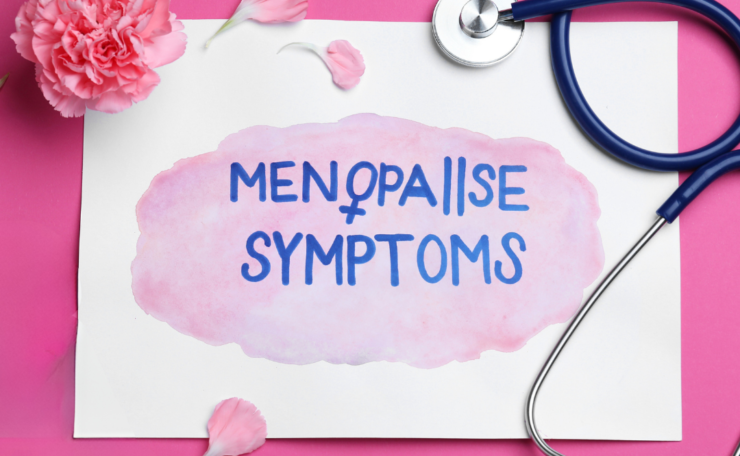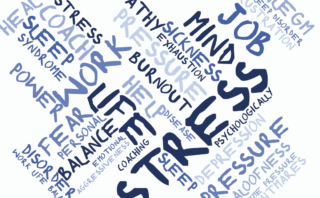Did You Know You Can Have a Symptom-Free Menopause Transition?
Yes, you really did read that right! It is very possible to have a symptom-free transition into menopause. Let’s explore.
Just because you may have been told how horrible this transition is, it doesn’t have to be.  Just imagine –
Just imagine –
- Your “Golden years” are really golden
- You enjoy deep, restorative sleep
- You clothes still fit
- You feel great
We can have a wonderful second half of our lives!
Enduring hot flashes and sleepless nights do not need to be your norm. You really don’t have to endure weight gain, hair loss and feeling crappy.
So, let’s get rid of the myths that plague us during this transition and natural part of our lives.
The perception is that women deteriorate around 50 and menopause is a curse. It’s used as an excuse and dismisses women. Each of us will experience our own personal changes. Once you know the signs you can prepare for this change and can own it as the best time of your life.
So, let’s flip the myths of menopause – the top ones that I frequently hear about menopause – and gain control over how we are feeling and know our options.
Menopause Happens Suddenly
Wrong – it does not hit like a Mack truck. You really don’t wake up one day with hot flashes, weight gain, moodiness, low libido and changes in our body that currently means menopause to many of us.
Menopause is a gradual process and begins with perimenopause which can be a 10 year time-frame leading up to menopause where all of our hormones are in flux. Menopause actually starts after one full year without a period and continues for the remainder of your life.
The average age of menopause is 51 but each of us will experience our own changes. Once you know the signs you can prepare for this change and may even consider it the best time of your life. Using supplements, targeted nutrition choices and self-care allows us to ease gently into menopause with minimal discomfort and more energy.
Feeling Like Crap is What We Are Destined for During Menopause
No, we are not!!!!
There is no reason you should feel terrible during peri-menopause and menopause. Your hormone levels shift and your ovarian function declines and your body will change. And, this is a natural, normal process our body was designed to navigate.
You can and really should be experiencing optimal health during this time. This includes a good night’s sleep, clear thinking, and stable moods. You deserve a vibrant working body and this depends on the foundation your body is working under. You do have control over your hormones even during menopause. Proper nutrition, exercise, supplements and self-care can set you up for success so that your symptoms are minimal.
Menopause Means You Are Old
The only thing menopause ends is your ability to make a baby! Here is what it really means:
- Freedom from periods and all the stress, pain and energy spend on them
- You can have post-menopausal zest and energy that you body isn’t spending its energy on reproduction each month
- Hormonal rebalance – your hormones will stabilize once you finally reach menopause. This will leave you with a predictable normal that you can now support with daily habits that keep you feeling your best
- Menopause offers opportunities to reinvent yourself and focusing on you. It can be the gateway to great happiness and worth. It offers a time to identify what brings you joy and to honor the wisdom you have gained all throughout your life experience.
Weight Gain is Inevitable During This Time
Our estrogen declines during this process and it does trigger fat storage in our midsection and leaves us less satisfied and full after a meal. So, we may eat more than we normally do. But, we don’t need to keep this muffin top! Here are some ways to help support total hormone balance and health weight:
- Get a handle on stress. The more stress, the more your body goes into survival mode and the more your nutrients are used to prepare for worst-case scenarios rather than fuel the best of you. Fast-paced lifestyles can push us to gran food on the go while our stress is high. This can lead to high blood sugar high insulin and fat storage. High levels of cortisol which is the hormone released in response to perceived stress, increases belly fat and raises blood sugar levels. When blood sugar goes up, so does insulin which compounds the effects of a high-carb diet.
- Be smart about a workout routine. It’s time re-evaluate your high intensity workout if you have been pushing through it and it doesn’t make any difference in your mid-section. If you haven’t exercised regularly in years and now you are ready to but you are not sure where to start-let’s chat. We can develop an exercise plan that fits your needs and goals. Exercise during menopause is a delicate thing. Being active is super important for longevity and it’s about working smarter and not harder. High-intensity workouts can put more stress on your already taxed adrenals. This will end up uping your stress hormones and prevents weight loss. Strength training or other gentler forms of movement to boost your metabolism is the best way to approach it during menopause.
- Adjust your diet to meet your hormones where they currently are. Adjusting your diet significantly decreases your risk for a variety of health issues – type 2 diabetes, dementia, heart disease and osteoarthritis. Letting your body do what it is supposed to do while feeding it nutrient-dense hormone friendly fuel. Changing your mindset toward nutrition will help you lose weight without even trying to. Getting our foundation in order and resetting our gut, liver and stress with targeted foods and supplements will greatly reduce menopausal symptoms. Estrogen is stored in fat so obese women will have more estrogen and most likely more symptoms – hot flashes which can often come sooner and more severe.
Chemically and Surgically-Induced Menopause is The Answer – WRONG!
Many women who were told a hysterectomy, endometrial ablation, birth control pills or synthetic hormones are the only way to get relief from symptoms. Doctors have told you this so let’s look at these myths so you can have a clearer perspective so you can make the decisions that can make a difference for you.
Endometrial ablation is the cure for heavy bleeding
Understand that heavy bleeding during perimenopause is not normal because of sporadic ovulation and increased estrogen levels. Fluctuating levels of estrogen in relation to progesterone cause many kinds of irregular bleeding patterns. When your body doesn’t release an egg, the endometrium continues to grow causing the next period to be heavier than the previous ones and this is totally normal. Just be sure that you have tried everything else to strengthen your foundation – diet, exercise, supplements, stress management, self-care to address estrogen dominance and hormonal imbalance before having a procedure than can’t be reversed. There are times when this is a good option – just be sure.
A hysterectomy is a cure for heavy bleeding or fibroids
Nope! In severe cases it should be seriously considered. When it comes to heavy bleeding and fibroids, consider and exhaust all options before having major surgery. Eating nutrient-rich foods, reducing stress levels and supporting gut, liver and thyroid function will help to moderate estrogen and stabilize menstrual flow. Once you are in menopause the bleeding will stop. Fibroids are a frequent cause of heavy bleeding. Their likelihood increases with age until menopause. They usually don’t have symptoms. They can change during peri-menopause because of estrogen dominance. The estrogen/progesterone imbalance can cause heavy bleeding. After menopause fibroids usually shrink because of decreased estrogen levels.
These organs are in our body for a reason and removing them shouldn’t be taken lightly. There are multiple ways to treat the underlying issues that preserve the uterus and ovaries because hormones orchestrate them. And they are important for your total hormonal health and wellness. Preserving your uterus and ovaries is a primary goal.
Birth Control Pills and HRT are the way to manage your symptoms
Hormone imbalance can be fixed without adding hormones. Synthetic hormones may temporarily hide symptoms, your body will have to work harder to overcome their effect. New symptoms, like migraines, can begin to appear along with vaginal dryness, abnormal uterine bleeding and spotting, thyroid dysfunction, blood clots and deep vein thrombosis, anxiety and depression and more!
The promise of quick, easy solutions and not looking at the root causes only drive your symptoms more. HRT may be helpful if you have exhausted all options and considering risk factors and personal preferences should be explored. You don’t need HRT during perimenopause or menopause.
Remember – menopause is not a disease. Your body is not deficient. You can balance hormones without hormones by using supplements, nutrition and easy lifestyle changes.
If you are ready to get off the rollercoaster, let’s chat we can develop a plan of action that is unique to you and your goals and situations. Let’s work through this phase so you can feel energized, happy and symptom-free. Set up a discovery call today and we can get started!





